
Soil Associations
0571m CHARITY 2
Soil and site characteristics
Well drained flinty fine silty soils in valley bottoms. Calcareous fine silty soils over chalk or chalk rubble on valley sides, sometimes shallow.
Geology
Flinty and chalky drift over chalk
Cropping and Land Use
Cereals; cereal and grassland rotations permanent grassland and some deciduous woodland on steep valley sides.
Component soil series
| Subgroup | Series name | Percentage | WRB 2006 link |
|---|---|---|---|
| 5.71 | CHARITY | 35% | Chromic Luvisols |
| 5.11 | PANHOLES | 15% | Calcaric Endoleptic Cambisols |
| 5.11 | COOMBE | 15% | Calcaric Cambisols |
| 5.71 | GARSTON | 10% | Siltic Chromic Endoleptic Luvisols |
| 3.43 | ANDOVER | 10% | Calcaric Leptosols |
Covers 293 km2 in England and Wales
Soilscapes Classification
| 7 |
Freely draining slightly acid but base-rich soils |
0571m CHARITY 2
Detailed Description
This association occurs in valleys in chalk country where the hilltops are capped by Plateau Drift. It is especially widespread in Hampshire and is also found on the Chilterns, on the North Downs in Kent, in Dorset and in Wiltshire. The association frequently occupies the whole of narrow dry valleys but in broad valleys it is found on lower slopes, and where there are streams it flanks their narrow floodplains. The soils are developed in flinty and chalky Head derived from Plateau Drift and the Chalk.
The main soils are brown, well drained and fine silty. Charity soils, deep typical argillic brown earths in flinty drift are usually non-calcareous, whereas the similar Garston soils have chalk at moderate depth. Coombe soils are typical brown calcareous earths in chalky drift and Panholes soils are similar but with chalk at moderate depth. Andover soils are shallow silty brown rendzinas over chalk.
The Head in which the main soils are formed varies in thickness; it is thickest in valley bottoms, along lower slopes and on upper valley sides just below the Plateau Drift. It is in these sites that Charity soils occur chiefly. Garston soils are found where the flinty silty Head thins on valley sides. Coombe or Panholes soils are present on lower slopes and on valley sides, depending on the thickness of chalky Head over chalk, whereas Andover soils are confined to the steep valley sides where the Head is thin or absent. Local patches of Frilsham and Soham soils reflect the presence of fine loamy, rather than silty, material in the adjacent Plateau Drift.
The association is extensive in broad Chiltern valleys near Hemel Hempstead and St Albans. Most of these valleys have streams and so there are narrow inclusions of Frome and Gade soils. Between Tring and Dunstable the association is found on broad spreads of Head in windgaps breaching the Chilterns scarp. Where the association has been mapped in valleys with streams, for example in Dorset and the Kennet valley in Wiltshire, there are narrow inclusions of Frome and similar soils.
In Hampshire, Rowton soils, similar to Charity but with gravelly subsoils, are common in valley bottoms. In valleys with streams, for example, in the Test and Itchen valleys in south Hampshire, small areas of Gade and Racton soils are included. Near Wendover the association is found on broad spreads of drift in a windgap breaching the Chiltern scarp.
Soil Water Regime
The soils are permeable and well drained (Wetness Class I). Excess winter rain drains easily into the soil on level to moderately sloping ground, but some run-off takes place on steeper slopes. Charity and Garston soils have weak surface structure and consequently they slake and cap easily leading to increased run-off and erosion. All the soils have moderate or large amounts of available water, depending on stone and silt content. They are non- or slightly droughty for the main arable crops but more droughty for grass, especially the most stony Charity and Garston soils.
Cropping and Land Use
There are long periods in autumn when these permeable soils can be safely cultivated but the timing of spring cultivations needs care, especially in a wet year. The structure is often weak and easily damaged if the soils are worked when too wet; there is a tendency to topsoil compaction and this increases the risks with direct drilling techniques. The level to moderately sloping land in valley bottoms is used for cereal crops, ley or permanent grass; a few vegetables are grown on the less stony soils in places where there is little risk of frost. The steep valley sides are mostly in permanent grassland or woodland, a consequence of slope rather than soil limitations. Here the use of machinery for grass improvement may be impractical. Stoniness also limits cultivation; some soils especially in the flat or gently sloping bottomlands are too stony for precision drilling or, exceptionally, for any cultivation and land use is restricted to permanent grassland or woodland. Summer growth of grass is limited on Charity and Garston soils but less so on the other main soils. Poaching risk is negligible.
0571m CHARITY 2
Distribution Map
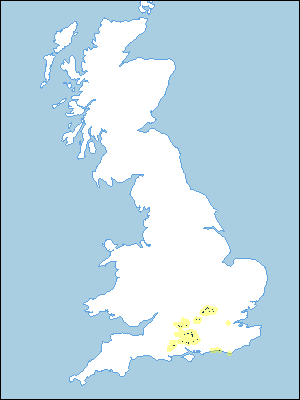 |
Note that the yellow shading represents a buffer to highlight the location of very small areas of the association.
Keys to component soil series
South Eastern Region
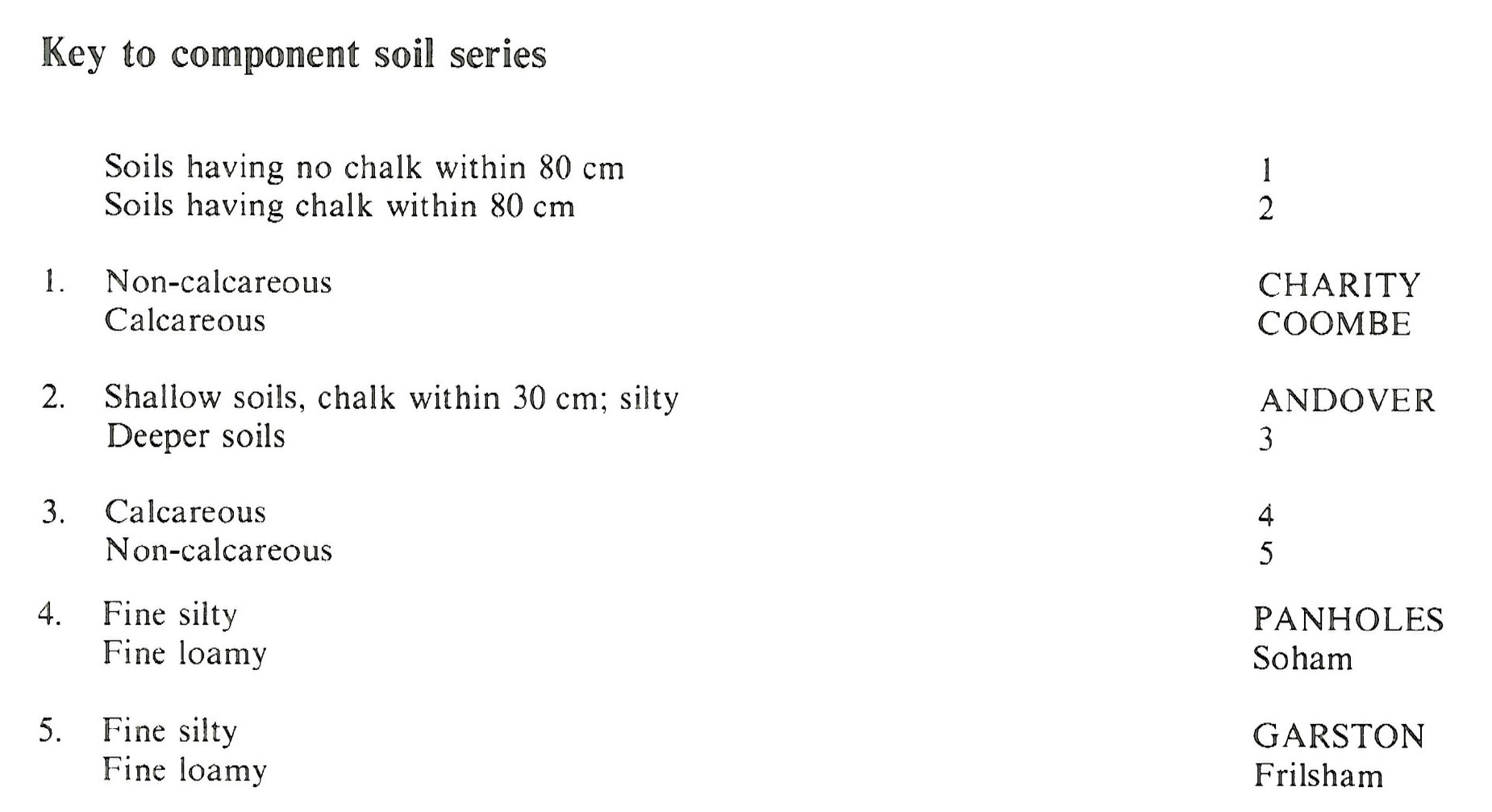 |
Eastern Region
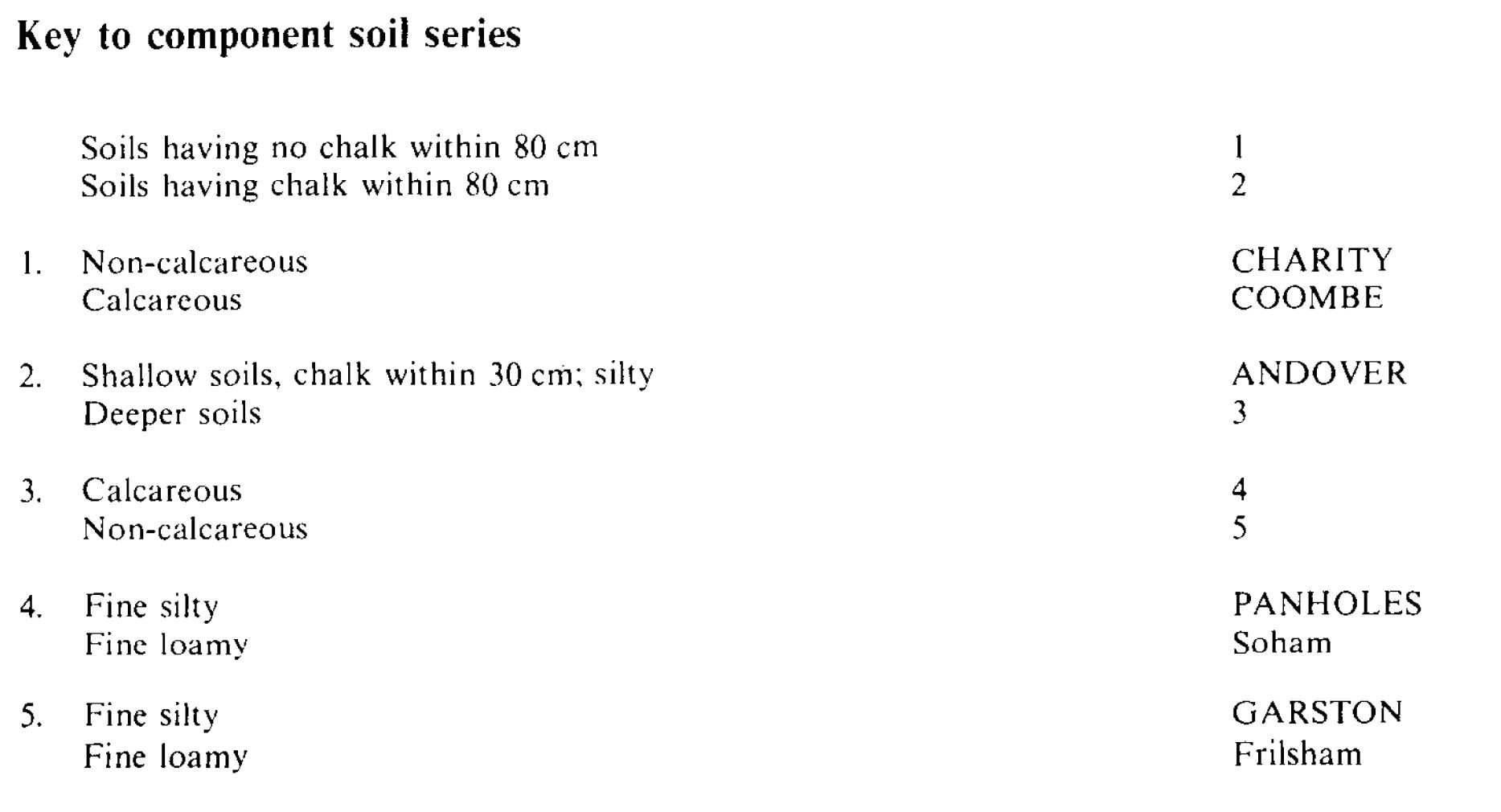 |
Typical Landscapes
South Western Region
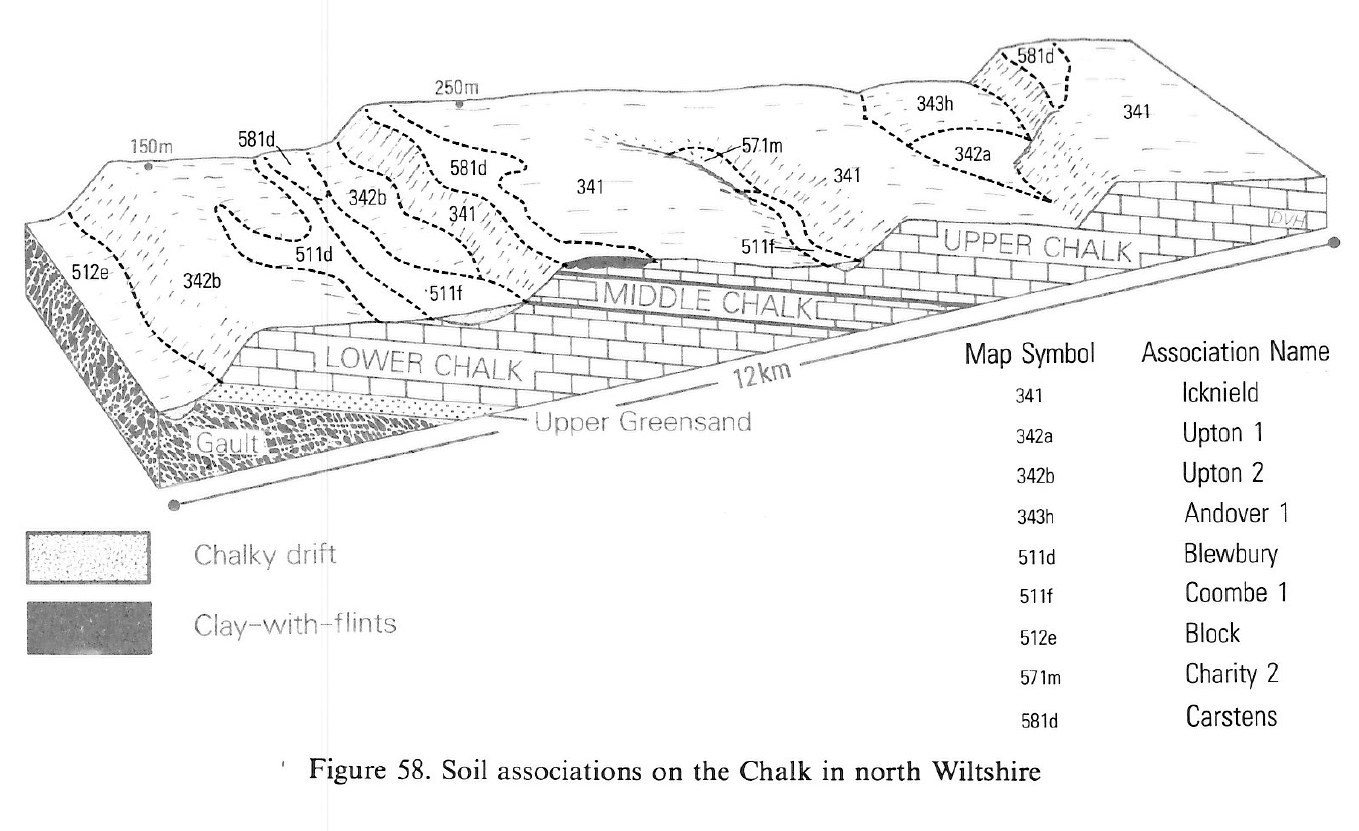 |
South Western Region
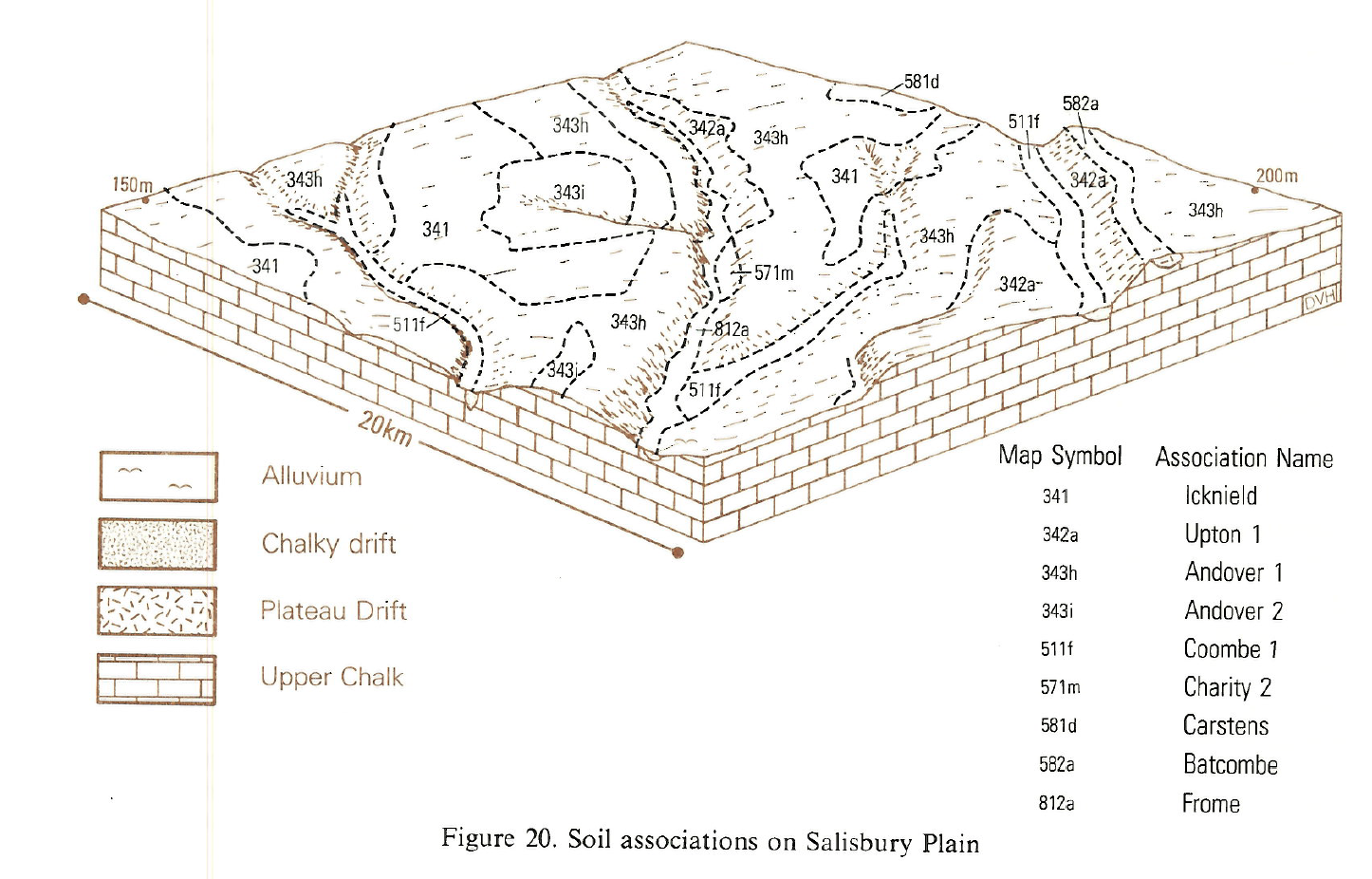 |
South Eastern Region
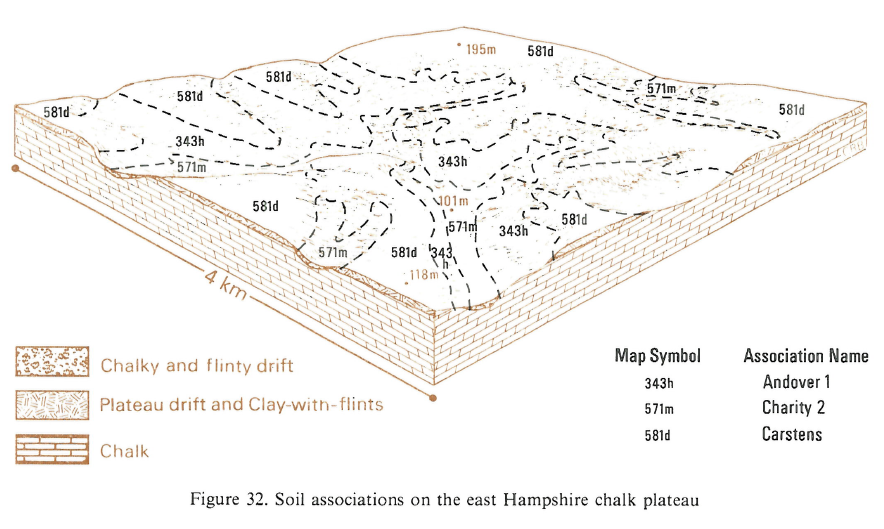 |
South Eastern Region
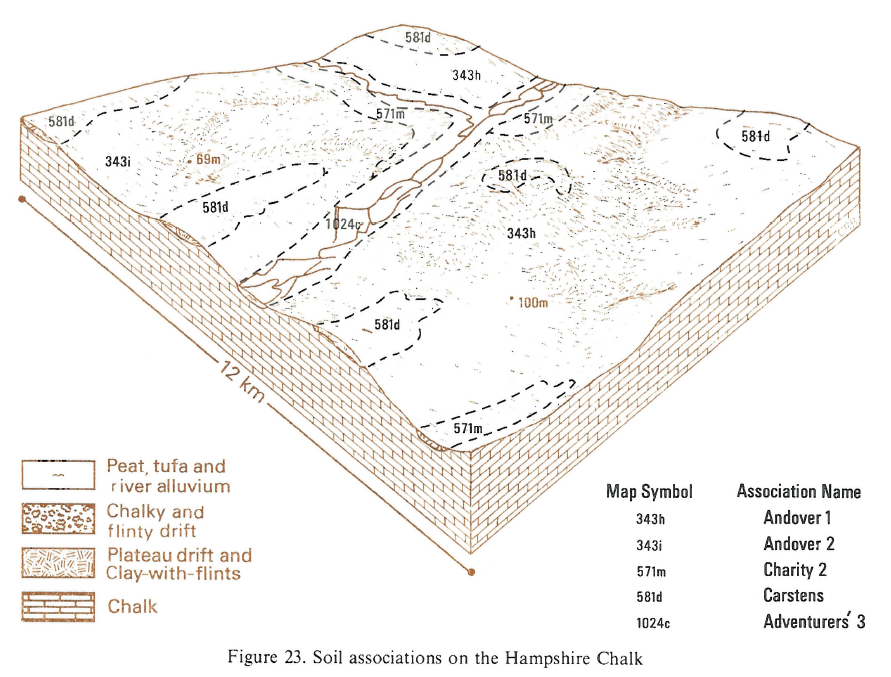 |
All information Copyright, Cranfield University © 2025
Citation: To use information from this web resource in your work, please cite this as follows:
Cranfield University 2025. The Soils Guide. Available: www.landis.org.uk. Cranfield University, UK. Last accessed 25/04/2025
